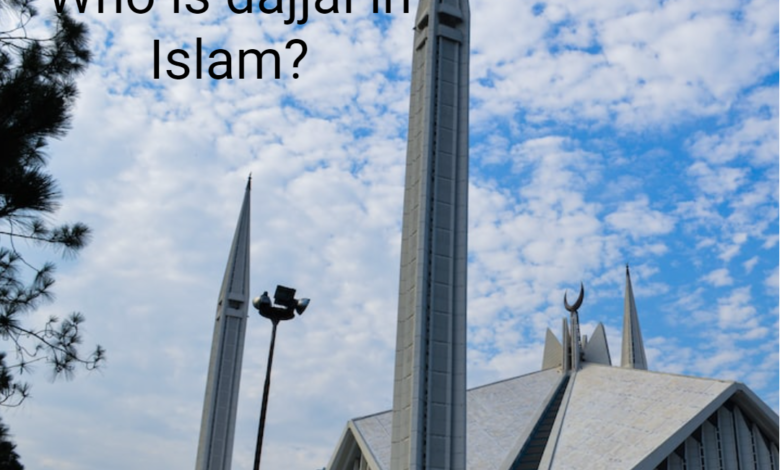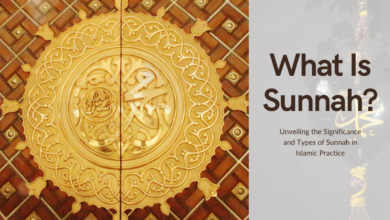who is dajjal in islam?

Introduction
In Islamic eschatology, the concept of Dajjal holds a significant place. Dajjal, often referred to as the “False Messiah” or the “Antichrist,” is a mysterious and deceptive figure prophesied to emerge in the end times. The concept of Dajjal is rooted in Islamic tradition and has captured the imagination of believers and scholars alike for centuries. This article aims to provide an in-depth understanding of who Dajjal is in Islam and the implications of his appearance.
Origins of the Dajjal Mythology
The concept of Dajjal finds its origins in the sayings of the Prophet Muhammad (peace be upon him), preserved in the Hadith literature. Hadith are the recorded traditions and sayings of the Prophet, which complement the teachings of the Quran and provide guidance to Muslims on various aspects of life, including beliefs about the end times.
The Dajjal is described in these Hadith as a malevolent figure who will emerge as a sign of the approaching Day of Judgment. He is portrayed as a charismatic deceiver possessing supernatural abilities, capable of performing miracles to deceive humanity. The word “Dajjal” itself is derived from the Arabic root “dajl,” which means “to lie” or “to deceive.”
Characteristics of Dajjal
The Hadith literature provides a detailed description of Dajjal’s characteristics and actions. Some of these characteristics include:
One-Eyed Deceiver: Dajjal is often described as having one eye. This eye is not only physically distinctive but also metaphorically significant, symbolizing his deceptive nature and warped worldview.
Charismatic Manipulator: Dajjal will possess extraordinary powers, allowing him to manipulate the natural order and perform apparent miracles. These powers will be used to misguide people into believing he is a divine figure.
Global Influence: Dajjal is believed to have widespread influence, traveling across the world and attracting a substantial following.
Deceptive Messages: Dajjal will spread false teachings and promote an ideology contrary to authentic Islamic beliefs. He will challenge monotheism by claiming divinity for himself.
End Times Sign: The emergence of Dajjal is considered one of the major signs of the Day of Judgment, marking a period of great trial and tribulation.
Islamic Perspective on Dajjal
In Islam, the concept of Dajjal serves as a reminder of the constant struggle between good and evil. Believers are encouraged to seek refuge in Allah’s protection, adhere to true teachings, and remain steadfast in their faith. The ultimate defeat of Dajjal is assured, as prophesied by the Prophet Muhammad (peace be upon him).
Islamic scholars emphasize the importance of being spiritually prepared for Dajjal’s emergence by strengthening one’s knowledge of the faith, practicing good deeds, and maintaining a close connection with Allah. This preparation equips believers with the discernment to recognize falsehood and the resilience to resist Dajjal’s deceptions.
Conclusion
The concept of Dajjal in Islam serves as a cautionary tale about the allure of deception and the importance of maintaining unwavering faith. As an embodiment of evil, Dajjal challenges humanity’s moral compass and tests the strength of their convictions. The figure of Dajjal underscores the significance of staying true to one’s beliefs, seeking refuge in Allah, and being vigilant against false teachings. In the end, the story of Dajjal encapsulates the eternal struggle between good and evil, reinforcing the central message of Islam to choose the path of righteousness and sincerity.
FAQs About Dajjal in Islam
Who is Dajjal in Islam?
Learn about the enigmatic figure known as Dajjal in Islamic eschatology and its significance within the religion.
What is the Significance of Dajjal in Islamic Beliefs?
Understand why Dajjal holds a crucial place in Islamic beliefs, particularly concerning the end times and the Day of Judgment.
Is Dajjal Mentioned in Islamic Scriptures?
Explore the references to Dajjal in Islamic texts, such as the Hadith (sayings of Prophet Muhammad) and other relevant sources.
What are the Characteristics of Dajjal?
Discover the distinctive traits attributed to Dajjal, including physical appearance and deceptive abilities, as described in Islamic teachings.
How Does the Arrival of Dajjal Fit into Islamic Prophecy?
Delve into how Dajjal’s emergence aligns with Islamic prophecies and the signs that are said to precede his appearance.
What Role Does Dajjal Play in the End Times?
Learn about the role Dajjal is believed to play in the events leading up to the Day of Judgment, as envisioned in Islamic eschatology.






